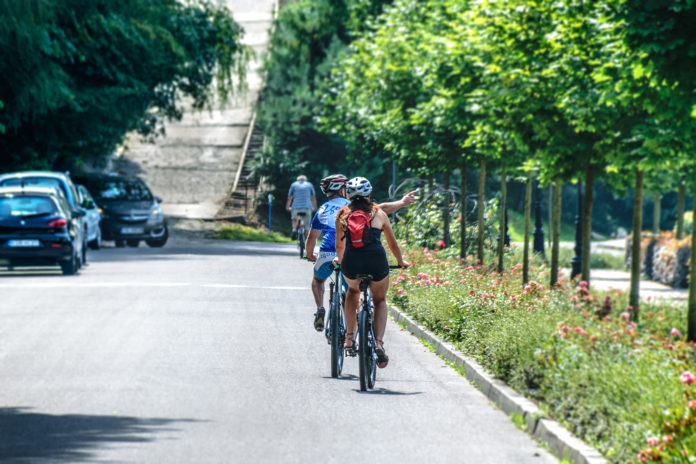Prince Albert city council has asked administration to prepare a report on the positives and negatives of creating a mandatory bike helmet law.
That’s different from the motion they originally planned to vote on during Monday’s council meeting. That one called for administration to create a draft bylaw for further debate. However, Ward 5 Coun. Dennis Ogrodnick changed his motion after several councillors made it clear they wouldn’t support the original one.
Ogrodnick said he was disappointed with some of the comments he heard from councillors who spoke against making bike helmets mandatory. However, he’s willing to wait for a report if that’s what it takes to change minds.
“It doesn’t mean that’s going to pass, but at least begin looking at making this mandatory,” he said during Monday’s council meeting.
Ogrodnick hoped to tackle two issues by making bike helmets mandatory: safety and crime reduction. He said council has heard numerous presentations from nursing students and other healthcare experts and officials who recommended the implementation of such a bylaw. He also said the bylaw would give police another tool to keep Prince Albert residents safe.
“This would give the police extra opportunities or extra power to stop people that are on bikes with backpacks, etc., who don’t have helmets,” he explained. “It would give them just another avenue to make that stop in our neighbourhoods, down our back alleys, etc. That’s why I’m bringing this forward.”
Ogrodnick received strong support from Coun. Dennis Nowoselsky, who said city council considered the idea 25 years ago, and should have followed through on it back then. However, other councillors were less eager.
Ward 1 Coun. Charlene Miller said she didn’t think it would have any impact on crime, while Ward 8 Coun. Ted Zurakowski worried it would negatively impact children from low income families.
“We may have a local business who donates bike helmets for a year, but what about after that?” Zurakowski told council. “We have kids coming to school without food in their bellies, without lunch and without an adequate parent, and now we’re asking them to wear a bike helmet on their way to school? That’s not a barrier I’m prepared to support.”
Mayor Greg Dionne said he was worried about how the bylaw would impact Prince Albert’s tourism sector. Like Miller, however, he also wasn’t convinced it would reduce crime.
“They (criminals) are not going to give the police an opportunity to stop them, so if it says they have to wear a bike helmet, they’re going to have a bike helmet on,” Dionne argued. “If you say they have to ride with an annoying shirt (on) at night, they’re going to ride with an annoying shirt on. They’re not going to give you any reason to stop them.”
Ogrodnick wasn’t convinced that making bike helmets mandatory would create barriers or fail to reduce crime. However, he also agreed to put the debate on hold while administration gathered more information.
“I don’t buy that argument,” he said in response to concerns about effects on low-income families. “It’s not a barrier to (riding to) school, buying a bike helmet. If you have a bike, it is a little bit more to get a helmet, but it’s not, I don’t think, preventative for you to get a helmet at the cost, but I would be prepared to change this to say that administration should prepare a report.”
The motion to ask for a report passed by a 5-4 margin.


